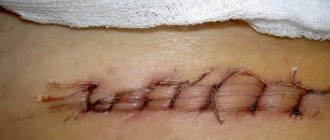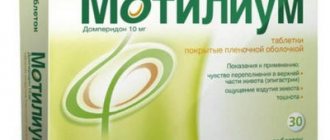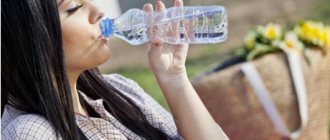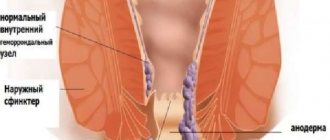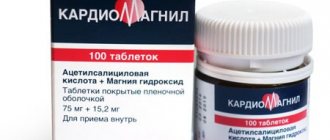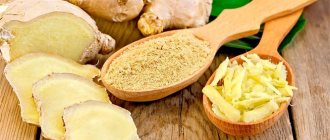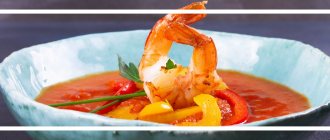No one will argue that regular physical activity strengthens not only the spirit, but also the body. But there is an opinion that with gastritis of the stomach you cannot perform strength and endurance exercises. What is this connected with, and is it really so? Is it possible to exercise if you have gastritis and stomach ulcers? How does physical activity affect the course of the disease? What is good about yoga for ulcers or gastritis?
It has been proven that almost every athlete suffers from gastrointestinal disorders. But, for the most part, these are caused not only by ultra-intense physical activity, but also by an unhealthy lifestyle. Today we will talk about which sports will ease your well-being during periods of exacerbation of gastrointestinal diseases. Is it possible to exercise your abs with ulcers and gastritis or should you limit yourself to simple general strengthening exercises and yoga asanas? What are the contraindications, and what are the benefits of training for gastrointestinal diseases?
The benefits of sports for gastritis
Before talking about cases where sports activities are contraindicated, it is necessary to dwell on the beneficial effects of sports for gastritis and peptic ulcers:
- By stimulating blood circulation, exercise improves the functioning of the gastrointestinal tract. With regular exercise, you can get rid of symptoms such as heartburn, cramps, constipation and flatulence.
- Regular exercise normalizes secretory and motor functions, which contributes to the regulation of digestive processes
- People who suffer from Helicobacter pylori infection during regular but gentle exercise notice that the pain becomes rare and less severe. Doctors believe that perhaps the reason lies in the fact that fitness enhances the immune-protective function of the body. But it is known that good immunity protects a person from the active activity of Helicobacter pylori.
- Regular exercise helps restore trophism in the gastric mucosa.
- A rush of blood to the digestive organs allows ulcerations to heal faster.
- With the help of exercises, you can improve deep diaphragmatic breathing.
Sport and health
Any muscular activity helps to increase blood circulation and speed up metabolism. In the digestive tract, there is an increase in juice secretion, the muscles of the stomach and intestines contract at a faster rate, as a result, the process of absorption of nutrients improves, and stool becomes regular. However, there are also pitfalls here that you should not forget about. The digestive system functions in “sleep mode” during sports, because all the blood flows to the working muscles.
After training, her activity returns to normal after 1 hour. It is not recommended to eat food at this time, but it is also not recommended to train on an empty stomach, you can learn about this from the article: https://fb.ru/post/fitness/2017/3/16/11063. In addition, you should not exercise on a full stomach. You can exercise only 2-3 hours after eating.
So is it possible to play sports with gastritis? Gastroenterologists and nutritionists in their reasoning come to the conclusion that playing sports has a beneficial effect on the patient’s body and, on the contrary, helps to improve the digestion process and helps strengthen the immune system.
What sports are contraindicated for gastritis and ulcers?
- For diseases of the gastrointestinal tract, it is recommended to completely abandon martial arts. Any blow to the stomach can aggravate the disease and lead to negative consequences.
- Doctors warn that professional sports with gastritis and ulcers are contraindicated. You should not, for example, engage in professional athletics. Studies have shown that 50-70% of professional runners suffer from gastritis.
- Weightlifting for gastrointestinal diseases is also not recommended. Most weight-bearing exercises put a lot of strain on the abdominal muscles and place excessive stress on them, which can aggravate the disease. Remember that even a bag that is too heavy can provoke a relapse of the ulcer, let alone a barbell.
- It is necessary to exclude sports that overly strain the abdominal muscles and threaten falls and injuries (for example, mountaineering).
When training is not recommended
The intensity of exercise or abandonment of it can depend only on how severe the condition is in a patient with gastritis.
- It is not recommended to play sports when the disease is in the acute phase. During the first week of exacerbation, it is better to refrain from any physical activity.
- It is necessary to exclude grueling workouts associated with strength exercises. Lifting heavy objects if you have a disease is strictly prohibited. Even if you are physically able to handle a lot of weight, do not forget that every kilogram you lift during illness can negatively affect a weakened stomach and lead to complications.
- Excessive physical activity combined with non-compliance with diet is contraindicated. After all, the basis for treating gastritis is the transition to a dietary diet. Meals should be taken in small portions 4 to 6 times a day.
- You can engage in moderate sports training no earlier than 1.5 hours after eating, and start eating after exercise no earlier than 45 minutes.
- For gastritis, it is useful to strengthen the abdominal muscles. For the period of remission or prevention, exercises for this muscle group are allowed. However, it is still not recommended to pump up your abs with great enthusiasm during illness. Excessive stress on the abdominal muscles should not be allowed.
- If the patient experiences pain or symptoms such as nausea, vomiting, or an increase in body temperature, physical activity is strictly prohibited.
- Long-distance running is also not recommended; you will have to give up professional sports for a while. But this does not apply to short evening or morning runs at a moderate pace.
- Sports diets are also contraindicated during treatment. While some food additives, such as protein, are harmless to the stomach, amino acids are strictly not allowed because they have a detrimental effect on the gastric mucosa.
Sports nutritional supplements are contraindicated for gastritis
Features of training depending on the stage of the disease
Gastritis, ulcers and sports are compatible concepts. However, it should be remembered that during the period of exacerbation of diseases of the gastrointestinal tract, it is necessary to follow some rules:
- During the acute period of gastritis and ulcers (the first 7-14 days), any training is excluded. Only after the painful syndrome has subsided can you gradually return to regular sports activities.
- For about 2 weeks after an exacerbation, you cannot do strength exercises; the popular CrossFit is also considered taboo.
Be sure to warn your instructor if you have any stomach problems.
Allowed:
- During an exacerbation, if the pain is not severe, you can pay attention to yoga. Eastern practices relieve stress and stimulate the digestive tract. Among the asanas it is recommended to practice: cobra pose, plow pose, camel pose. One of the best techniques for gastritis is the yogic locust pose. This complex, consisting of several asanas, is recommended to be performed during the period of remission of gastritis and peptic ulcers.
- You shouldn’t ignore sports if you have a stomach ulcer. Scientists have proven that even during an exacerbation of the disease, walking is very useful. Several times a week, take yourself a half-hour walk at a steady pace. Experts have found that such aerobic exercise in a gentle mode is useful for gastritis and ulcers. It helps prolong the remission stage of gastrointestinal diseases.
What to consider when exercising
Few people who suffer from gastritis know that the recommended degree of exercise and intensity of exercise depends on the type of hydrochloric acid secretion. It has been proven that serious training in a fast mode leads to a decrease in stomach acidity. Therefore, regardless of the stage of the disease, it is recommended to adhere to the following advice from physiologists.
People with high stomach acidity are advised to exercise as follows:
- All exercises are performed at a slow pace (smoothly and without jerking).
- The intensity increases gradually, and at the end of the session it also slowly decreases (be sure to do a cool-down before stretching). For example, on glute day, you do squats and lunges with free weights. This means that before stretching you need to repeat all the exercises, but without sports equipment.
- With increased secretion of aggressive hydrochloric acid, it is recommended to alternate intense strength training with relaxing techniques. Between approaches, we recommend doing several yoga asanas.
- We also draw your attention to the fact that in case of high acidity you should exercise in a multi-repetition mode. However, long-term activities are allowed.
- An ideal training option for people with increased secretion of hydrochloric acid would be fitness on a Swiss ball or home Pilates classes. We also advise you to think about yoga.
Experts advise people with gastrointestinal diseases to exercise an hour and a half before lunch. During this period, the production of hydrochloric acid decreases. There is also an opinion that if you have gastritis, it is better to train in the evening (after dinner). However, some scientists believe that late sports activities do not allow the body to fully rest at night, which leads to fatigue and stress. But it is known that stress provokes exacerbation of gastrointestinal diseases.
For patients with reduced secretion of hydrochloric acid, it is recommended:
- Exercise for no more than half an hour and always in the first half of the day. It is advisable to drink a glass of still mineral water after training.
- People with low stomach acid should exercise at a more intense pace and with fewer repetitions.
Sports nutrition
Patients with gastritis are prescribed physical therapy, depending on the stage of the disease, and the effectiveness of the method has been tested for centuries. Playing sports becomes an important element of recovery. To have a sporty appearance, athletes tend to consume special nutrition. A gastroenterologist will help you choose the right ingredients based on the patient’s diagnosis.
The composition of sports nutrition includes food supplements with vitamins and protein-containing microelements, a complex of proteins (gainers), various carbohydrates, fat burners, creatine, nutrients and amino acids. They are purchased in tablets, liquid form, capsules, and powder form. Tablets and capsules are taken either before or after meals with water. Powdered supplements are taken simultaneously with food, stirring. Liquid supplements – after meals as syrup.
Supplements are easily absorbed by the body; the substances contained in the preparations are quickly broken down. A feeling of satiety appears, energy increases, and general condition improves. After taking supplements, the human body replenishes its supply of vitamins, restores and maintains muscle mass.
In combination, the doctor will probably prescribe sports nutrition and diet for the patient.
Admission procedure
Low acidity - choose a diet with foods containing protein. The generation of gastric juice is improved with the help of acidic foods. This means you should choose a diet that includes fermented milk products. It is possible to use drugs containing proteins, proteins, and carbohydrates. Then creatine supplements will need to be excluded from the diet.
If acidity is increased, food that is difficult for the stomach to accept is removed from the diet. A strict diet is used, recommending the use of carbohydrate-based preparations with monosaccharides, formulations with protein and protein at every meal. In the absence of contraindications, gainer drugs are allowed to be taken. Consequently, when the acidity of the stomach is increased, the metabolic process in the body is activated, digestion improves, and the athlete does not lose weight.
If a patient is diagnosed with chronic gastritis, the person is limited in the consumption of many foods, the athlete loses weight, and suffers from vitamin deficiency. For the mentioned form of gastritis, a protein and carbohydrate diet is recommended. Sports nutrition with these microelements should be taken before meals to speed up the process of gastric motor functions.
If an acute form of stomach disease is diagnosed, it is recommended to abstain from eating on the first day; on the second day, food intake is increased, but slightly. The result is a meager diet; doctors are forced to include sports nutrition with carbohydrates (in small doses) 1-2 times a day. In this form of the disease, it is possible to take gainer drugs in small quantities.
Sports nutrition drugs contraindicated for gastritis
The list of prohibited drugs for the diagnosis of gastritis includes amino acids, creatine, and carbohydrate drugs. The use of protein preparations in small quantities is allowed.
Correct technique
A gastroenterologist must be involved in the selection of sports nutrition for a patient with gastritis. Based on the examination, the doctor makes a specific diagnosis depending on the form of the disease and makes a conclusion with a prescription.
Capsules and tablets are usually taken half an hour after meals. There are a number of drugs that are taken an hour before meals with a glass of water or other liquid.
Supplements in powder can be taken by adding to food before use, or simply diluted in water. It is better to consume with food, absorption occurs much better. Sports nutrition in liquid form is always taken only after meals.
If we analyze the situation in detail, we note that sports nutrition consists mainly of proteins represented by proteins related to dietary nutrition. If you are not allergic to foods containing protein, you can consume such food.
Gainers have been developed that contain carbohydrates and proteins. They need to be treated with caution. The presence of monosaccharides and sugar is monitored. It is not recommended to ignore the presence of various flavoring additives.
Sports supplements that are harmful to the stomach
Additives contained in sports nutrition are of no small importance for patients with gastritis, playing an undesirable role for the stomach. Before taking, you will need to study their composition, avoiding exacerbation of the disease.
If the composition contains an abundance of amino acids, it is advisable to refuse food, it leads to irritation of the gastric mucosa. For example, BCAA (branched chain amino acids) is considered such. This food is sold in tablets, powders, capsules and liquid form. Creatine causes stomach irritation.
To prevent the development of negative impacts, adhere to the following rules:
- Do not take amino acids on an empty stomach. After eating, their absorption will slow down, but will not cause damage to health. But you will be protected from stomach irritation.
- Try to divide your doses into smaller, but more frequent doses. Such a fractional regimen will not harm the stomach.
- You should not give in to advertising; choose food that you personally trust or that was recommended by your doctor.
- Do not consume carbonated drinks, dishes with excess salt, alcohol, pickled products, coffee, egg yolk, smoked foods, canned food, spices.
Recommended dishes and products: fresh bread, preferably homemade, drink purified water, homemade cottage cheese, boiled fish, lean boiled meat, weak tea, boiled vegetable puree, porridge.
Abdominal exercises for stomach ulcers
It is difficult to answer the question whether it is allowed to pump up the press with gastritis and ulcers, since it all depends on the stage of the disease. If you have been diagnosed with an exacerbation of gastritis or a recurrence of an ulcer, then, of course, various variations of twisting and the “Fold” exercise are contraindicated.
Separately, it is necessary to say about the popular “Belly Vacuum”. Although this exercise is more gentle and is recommended even for women after childbirth, it should not be performed during exacerbation of gastritis or ulcers. The fact is that the “vacuum” ensures maximum blood flow to the organs of the gastrointestinal tract, which quite often causes pain. And even if your health does not worsen when performing this static exercise, we still recommend consulting with your doctor.
Remember that the flow of blood to the organs of the stomach and intestines is good during the period of remission. In the acute stage (even if you suffer from severe pain), abdominal training is contraindicated. With a stomach or duodenal ulcer, they can even provoke bleeding. You can start playing sports without fanaticism 1-2 weeks after the start of treatment (depending on how you feel). Leave abdominal pumping exercises only for the period of complete healing of the ulcer.
If, while performing exercises aimed at working the abdominal or core muscles, you feel pain in the upper abdomen, we advise you to consult a gastroenterologist.
Unpleasant sensations localized in the upper abdomen may indicate other problems:
- neoplasms;
- kidney or bladder stones;
- spinal disc herniation.
Physical activity
What sports can you do if you have gastritis? Walking, running, swimming, figure skating, tennis or badminton, cycling and aerobics are especially useful for this disease. The most useful sport is aerobics, as it uses elements of “belly dancing”. During movements, the internal organs feel a light massage, which improves the supply of oxygen and blood to the walls of the stomach.
As for physical activity during gastritis and its intensity, gastroenterologists adhere to the point of view that they should be determined strictly on an individual basis, depending on the motility of the stomach and the personal characteristics of the patient. Any exercises that are aimed at strengthening the abdominal muscles have a beneficial effect on the course of the disease. If a person runs or swims, his internal organs feel the same light massage movements as during aerobics. It is also useful to do physical exercises that are aimed at strengthening the abdominal muscles, since this muscle group plays a major role in the functioning of the intestines.
How long should you not exercise after treatment?
If, however, worsened gastritis or an ulcer makes itself felt, then it is necessary to undergo a diagnosis, and then a course of treatment prescribed by a doctor. Upon completion of the course of taking medications, try not to burden your body for 10-14 days. This is necessary for its complete recovery. After this period, you can begin light training. It is ideal to start with a 10-15 minute light warm-up, and then gradually increase the duration of sports activities and intensity.
If you play sports professionally, you should understand that after treating an aggravated ulcer, you should stop taking sports supplements that negatively affect the mucous membrane.
People who have had an ulcer surgically removed need to give up their usual workouts for up to 6-8 months. With the doctor's permission, after 2-3 months you can lift weights up to 5 kg. After surgery, physical therapy exercises are recommended. In addition to a set of general strengthening exercises, the patient should be familiarized with breathing techniques.
Now you know about the influence of sports on the course of ulcers and gastritis. Remember to listen to your body, because we are all individuals. One person can safely engage in fitness or dancing during an exacerbation of the disease, while another experiences discomfort when doing morning exercises. We advise you to listen to the recommendations of your doctor and not to abuse your body. Wait until the period of exacerbation passes, and then “dosage” increase the load.

